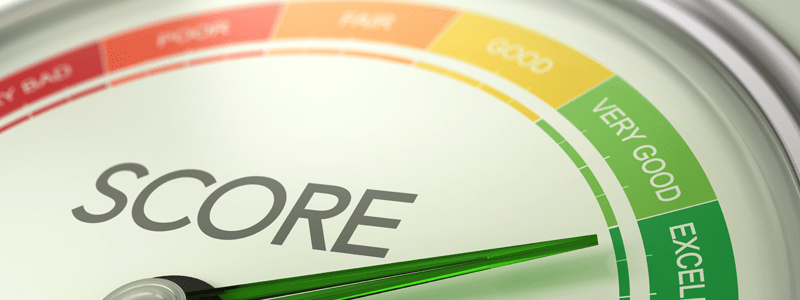
If you’re on a low income and don’t have the funds to buy a car outright, you may be wondering whether you’ll be eligible for a car finance finance.
However, it’s not only your income that lenders look at when you apply for car finance.
How is car finance different for people on low income?
In short, it’s not. Car finance works the same for everyone. You place a deposit on the car you want – if you can – and then repay the balance along with interest over an agreed period of time.
There isn’t a minimum amount of income you need to make before you’re eligible for car finance either. Lenders will only consider how regular your income is and how much because it shows what you will be relying on to repay the finance.
So, while your income is one thing that lenders look at, it’s not the only one and not the ultimate deciding factor when it comes to whether or not your application is approved.
Can I get a car finance if I’m on benefits?
Buying a car outright is not an option for many who rely on benefits. And if you don’t have the money to make a large one-off payment for a car, a car finance for benefits claimants is possible.
Lenders look at several things, including your income. However, that income doesn’t necessarily have to come from full-time employment. Alternative incomes such as pensions or benefits can be considered too.
If you’re in receipt of any of the below, you may still be eligible for car finance:
- Jobseekers allowance
- Universal credit
- Income support
- Child tax credits
- Working tax credits
- Disability Living Allowance (DLA)
- Carers allowance
- Personal Independence Payment (PIP)
Low income and affordability
While having a low income shouldn’t be a barrier to getting a car finance, it’s sensible to be realistic about how much you can afford to borrow.
If you’re on a low income with little to spare every month, will you be able to afford monthly repayments on top of other expenses that come with a car, such as your insurance premium and fuel?
Affordability is something that lenders look at seriously when it comes to car finance applications.

If accepted, the offer you receive will be based on how much of a risk the lender feels you’ll be.
If you have a limited income, lenders may feel you’re a bigger risk, as you could be more stretched financially, and therefore more likely to miss a payment.
However, this is when your credit score steps in.

Rates from 12.9% APR. Representative APR 18.9% We are a credit broker, not a lender.
*a hard search will be performed if you decide to proceed
How your income affects your credit score
For lenders, your credit score and your report is a big deciding factor as to whether they accept your application.
Your income has minimal affect on your credit report. The report mainly highlights your financial history, including:
- Whether you’ve borrowed money in the past and when
- Whether you’ve repaid your loans or are paying them regularly
- Any patterns of missed or late payments
- How often you have applied for credit
- The amount of credit you have access to (such as a credit card limit) and the amount you’re actually using
- What types of debt you have
- Any public records, such as County Court Judgements (CCJs) or bankruptcies
Your credit score takes all of the factors above and uses them to predict how likely you are to repay finance. The higher your score is, the more chance you have of being accepted for finance.
Lenders will generally view your income and your credit score separately, as one has no bearing on the other.


However, if you have debt listed on your report, they may use the figures from there alongside your income to see if you’ll be able to afford another loan.
How can I improve my chances of getting a car finance on a low income?
Obviously, everyone would like a higher income, but sometimes it’s just not possible. However, you can do some other things to improve your chances of being accepted for a car finance.
1. Improve your credit score
This is one of the best ways to increase your chances of being accepted for car finance. First, check your report to see what the lenders will see, as this will give you an idea of what needs improving.
If you’re not already, register on the electoral roll as this will boost your score, because it indicates stability.
Please continue to keep up with your payments, making them on time before applying for finance. And try to pay down balances as much as possible.
2. Save for a bigger deposit
The larger your deposit is, the less you’ll have to borrow. Not only will that give you a better chance of being accepted for a car finance, but it will also reduce the amount of interest you have to pay.
3. Consider having a guarantor or make a joint application
It’s not always ideal, but a car finance with a guarantor could be more likely to be approved. Likewise, if you can make a joint application, for instance, with a partner who has a good credit score, it can increase your chances of getting approved.
Read: What is a guarantor and can I use one for a car finance?
Things to watch out for when applying for a car finance
Here at Hippo, we specialise in helping everyone – regardless of their financial circumstances. But there are a handful of lenders who will target those with a bad credit rating or low income.
Here are some things you should look out for to ensure you’re not taken advantage of:
1. The total cost of the finance
Some companies try to take advantage of those on a lower income or who are looking for a specialist lender. Often their interest rates will be far above and beyond what you should be paying. Taking one of these finance agreements could add thousands to the amount you have to pay back or even cause struggles financially.
If you can’t afford it, don’t be afraid to walk away. There will be another option out there for you.
2. Too good to be true deals
It’s always good to question your car finance offer if it sounds too good to be true. If the interest rate seems lower than you expected, find out why. It could be that the deposit amount asked for will be unaffordable, or the interest you should pay has been incorporated into the cost of the car itself.
3. Making multiple applications
It’s tempting when you’ve been declined for a finance to try with another lender. However, this is the worst thing you can do. Too many applications will look bad to lenders over a short period of time and can damage your credit score.
4. False claims
Avoid lenders who promise to lend you money – they cannot do this without looking at your details and credit score. It signals they may not be as reputable as they make out, as this goes against the 2010 Consumer Credit Act that deems it an offence to make false or misleading claims about consumer finance. It’s always best to deal with a trusted, reputable company when it comes to your finances, no matter what the others may be offering.
How Hippo can help
Every day we speak with customers from all sorts of financial backgrounds, and our aim is always the same – to find them an affordable car finance deal that ticks all the boxes.


We do this by explaining all your options, taking your circumstances into account, and only ever using a soft search credit check to find out if you’re eligible so as not to hurt your credit rating. If you do choose to proceed with purchasing a vehicle, the lender will conduct a hard credit search and this will impact your credit profile.
See if we can help you too in minutes without affecting your credit score.







Get a quote in minutes ✅
– with zero impact on your credit score!*
Get Started






Rates from 12.9% APR. Representative APR 18.9% We are a credit broker, not a lender.
*a hard search will be performed if you decide to proceed













